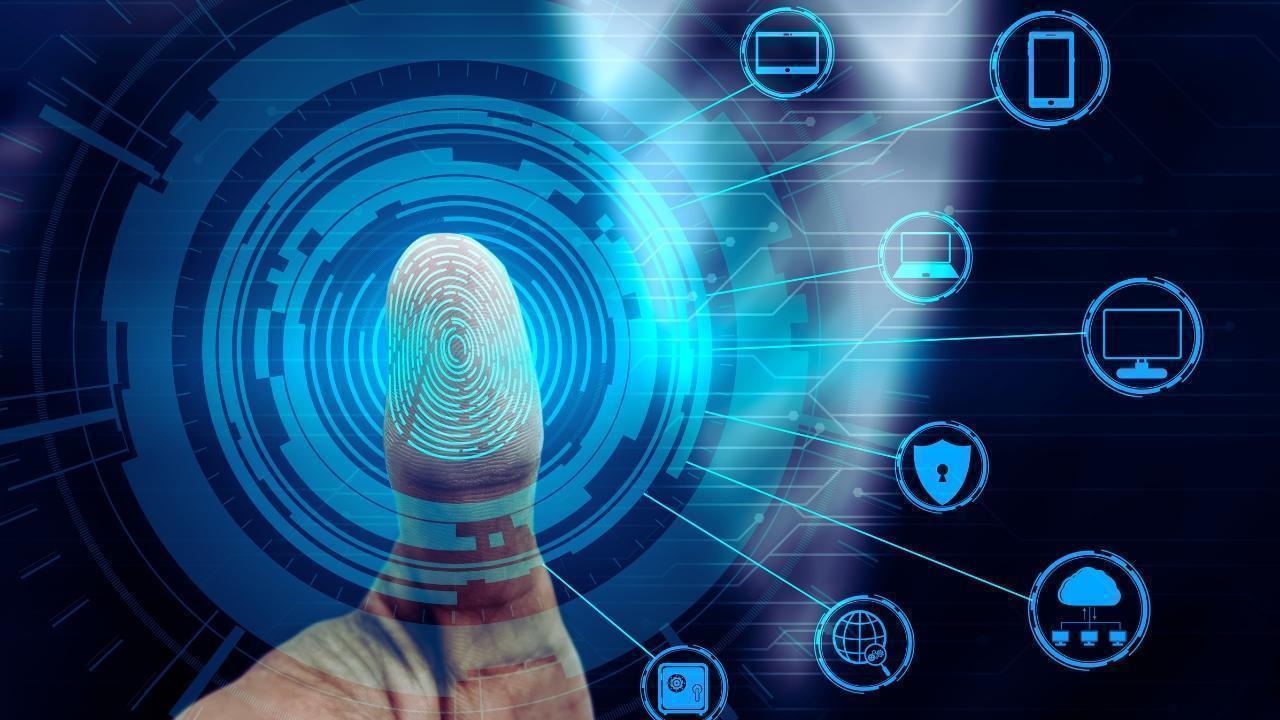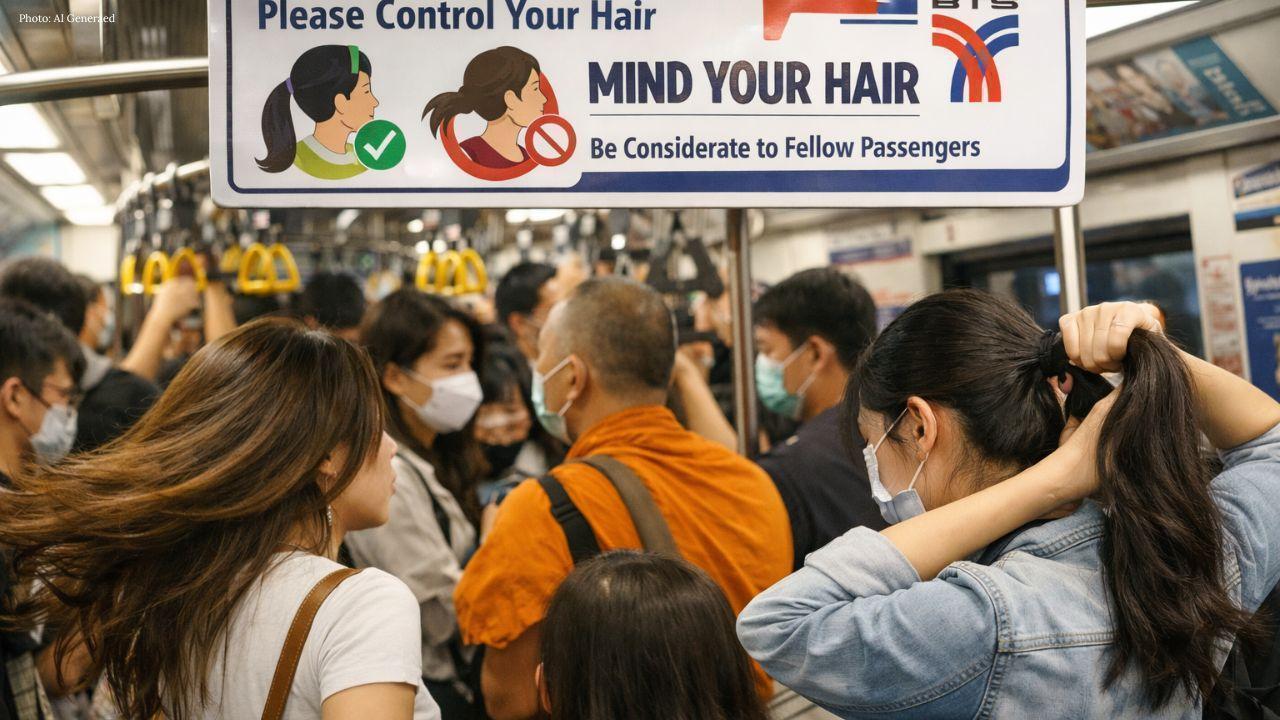You have not yet added any article to your bookmarks!

Join 10k+ people to get notified about new posts, news and tips.
Do not worry we don't spam!

Post by : Anis Farhan
In airports across the globe, a quiet revolution is taking place—boarding passes and physical IDs are being phased out in favor of biometric identification systems. From facial recognition cameras to iris scans, airports are transforming the way passengers move through terminals. What used to be a paper or digital ticket is now increasingly replaced by a face scan that serves as your boarding pass, passport, and ID all at once.
This change is not limited to one region or type of airline. From the United States to the Middle East, Europe to Southeast Asia, biometric boarding is becoming the standard rather than the exception. Airports like Dubai International, Heathrow, and Los Angeles International are already operating advanced biometric corridors for check-in, security, and boarding. And for passengers, it means a smoother, faster, and contactless experience.
But how does this new system work? Why are airports investing heavily in facial recognition? And more importantly—what does it mean for the future of air travel?
Biometric boarding relies primarily on facial recognition software that verifies a traveler’s identity by scanning and matching their face against a government-issued document, typically stored in a secure government or airline database. When a passenger checks in online or at a kiosk, a photo is taken or uploaded. That photo is then used throughout their airport journey—from dropping off luggage to clearing security and boarding the plane.
Airlines such as Delta, Emirates, and Lufthansa have rolled out biometric options where passengers walk through facial scan checkpoints instead of showing a boarding pass or passport. In many cases, it takes just a few seconds to verify a passenger’s identity, dramatically reducing boarding times.
The data is encrypted and stored securely, often deleted within 24 to 48 hours after use, depending on local data protection regulations. These systems are not just faster but are also more reliable in catching identity fraud or misuse.
There are several reasons airports and airlines are embracing biometric boarding technology:
Speed and Efficiency: A facial scan is faster than manually checking a passport or ticket. Boarding times are reduced significantly, often by more than 30%.
Enhanced Security: Biometric data is harder to forge or manipulate than physical documents. This increases security against identity fraud and enhances border control accuracy.
Post-Pandemic Hygiene: Since the COVID-19 pandemic, the demand for contactless travel has skyrocketed. Biometrics eliminate the need for passengers to hand over documents or touch shared surfaces.
Passenger Experience: With biometric corridors, travelers can move seamlessly through terminals. No more fumbling for documents, no more paper tickets—just a clean, fluid journey from check-in to gate.
Operational Savings: For airports and airlines, faster boarding and streamlined operations reduce labor costs, lower congestion, and improve turnaround times for flights.
Many major airports have already launched or are in the process of launching biometric boarding programs:
Heathrow Airport (UK): Invested over £50 million in biometric screening technology for all terminals.
Dubai International Airport (UAE): Implemented facial recognition gates at immigration and boarding.
Hartsfield-Jackson Atlanta International (USA): Delta Air Lines offers a full biometric terminal experience.
Singapore Changi Airport: Facial recognition is integrated into automated check-in, immigration, and boarding processes.
Meanwhile, countries like Australia, Canada, and Germany are testing facial recognition in collaboration with border control agencies, aiming to streamline entry and exit procedures for international travelers.
While the technology is undeniably efficient, it has sparked debates around privacy, data protection, and surveillance. Critics argue that passengers are often not fully aware of how their biometric data is being used, stored, or shared.
There is also concern about potential misuse of the data—whether by government authorities for surveillance purposes or through data breaches by hackers. Questions arise about consent, opt-out options, and transparency in how biometric systems operate.
Organizations like the Electronic Frontier Foundation (EFF) and Privacy International have urged governments and corporations to adopt strict biometric data governance policies to ensure that passenger rights are not violated.
Not entirely—at least not yet. While biometric boarding is being rapidly deployed, traditional methods are still in use, particularly in smaller airports or regions with limited infrastructure. However, the global trend is moving swiftly toward full digital integration, with biometrics at the core.
For instance, India’s Digi Yatra program allows travelers to pass through multiple checkpoints using just their face, while the European Union is building a central biometric entry-exit system for all non-EU nationals.
Industry experts predict that within the next decade, physical documents may become obsolete for most frequent international travelers, as facial scans, digital IDs, and blockchain-backed travel credentials take center stage.
If you’re traveling through a major airport in 2025 or beyond, chances are you’ll encounter biometric scanning in some form. Here are a few things to keep in mind:
Opt-In Programs: Most biometric boarding systems are currently voluntary. You can choose to participate or go through the manual check-in and boarding process.
Data Retention Policies: Always check how long your data is stored. Some airports delete it within 24 hours; others retain it for longer periods for regulatory compliance.
Device Compatibility: Some biometric boarding programs allow you to pre-enroll through mobile apps, where you upload a selfie and scan your passport in advance.
Privacy Settings: Airlines usually have privacy policies outlining how they collect and use your biometric data. It’s worth reading these before opting in.
Biometric boarding is part of a larger vision for seamless, digital-first travel. From biometric immigration to AI-powered luggage tracking, the aviation industry is rapidly integrating smart technology at every step.
Airports are investing in cloud platforms, Internet of Things (IoT) infrastructure, and digital identity solutions to ensure interoperability between systems. The ultimate goal? A frictionless, paperless, and personalized journey from home to hotel.
Tech giants like Amazon Web Services, NEC Corporation, and SITA are already powering these smart travel ecosystems. And with blockchain and decentralized identity tools on the horizon, the future could bring even more personalized, secure, and contactless experiences.
That depends on how it's implemented. For frequent fliers, this could mean shorter lines, faster boarding, and less travel stress. But for others, especially those concerned about surveillance, consent, or data leaks, the shift may feel invasive.
The key lies in transparency, regulation, and giving travelers a genuine choice. If passengers are fully informed and empowered, biometric boarding could very well be the next leap in making air travel smarter, safer, and more humane.
As international travel recovers post-pandemic, the need for smoother and safer experiences is paramount. Biometric technology offers an elegant solution to the inefficiencies of legacy systems. With proper safeguards, it has the potential to enhance—not hinder—how we experience the world.
Governments, airlines, and airport operators must now walk a fine line between innovation and ethics. And travelers, increasingly, will face a new question at the gate: not just “Where are you flying?”—but “Do you trust the scan?”
This article is intended for informational purposes only. The views and interpretations expressed are based on publicly available information and current travel technology trends as of July 2025. Travelers should refer to official airline and airport policies before opting into biometric services.










Raja Ampat Welcomes Back Endangered Zebra Sharks
Scientific collaboration and community education drive rare species repopulation in the Coral Triang

Tomorrowland Thailand Set for Full‑Scale Asian Debut in December 2026
Thailand to host world‑renowned electronic music festival in Pattaya, expected to draw tens of thous

Malaysia’s January Trade Hits RM272.4b as Exports Surge Penang Leads
Exports climb 19.6% year-on-year to RM146.9b with Penang contributing 44.2% of total shipments says

Penang PKR Exco Fahmi Zainol Pleads Not Guilty in Wife Abuse Case
Penang executive councillor Fahmi Zainol denies charges of voluntarily causing hurt to his wife as c

Palapes Cadet Death Case Military Trainers Face Trial as Court Lowers Bail
UTM Palapes instructors plead not guilty to culpable homicide over cadet’s death court lowers bail a

BTS Urges Passengers to Control Hair During Peak Hours
Bangkok’s BTS Skytrain advises commuters with long hair to avoid flicking or tossing it to prevent d